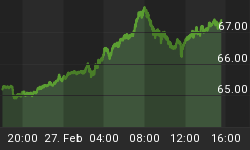Since the invasion of Ukraine began, over 400 international companies have announced their withdrawal from Russia, either on their own will or due to pressure at home, but dozens of big names have ignored public pressure and are conducting business as usual in a country now nearly fully isolated from the international community.
As the conflict in Ukraine drags on, international companies still doing business in Russia are coming under increasing pressure to leave. Just days before withdrawing from Russia, #BoycottMcDonalds and #BoycottCocaCola was trending on Twitter
In a speech to the U.S. Congress last week Ukrainian president Volodymyr Zelenskiy urged politicians to play their part in getting companies to stop financing the “Russian military machine.”
Not everyone is listening.
Since February, a research team at Yale University has been tracking all the companies leaving Russia. They’ve also compiled a “hall of shame” list of the companies still operating in Russia.
According to the research, a total of 34 companies are defying demands to exit Russia or at least scale back operations.
Yale University professor Jeffrey Sonnenfeld who leads the research team said that companies still operating in Russia have strong reputational incentive to withdraw.
“Companies that fail to withdraw face a wave of U.S. public resentment far greater than what they face on climate change, voting rights, gun safety, immigration reform, or border security,” Sonnenfeld wrote in an article for Fortune.
Companies that have chosen to maintain operations in Russia say they provide essential services, such as food or medicine, which are unaffected by sanctions. It’s a vague determination, at best. Several international hotel chains, cosmetics outfits, restaurants and tech companies are defending their stay in Russia, claiming to be essential service providers.
“Essential” or not, their stay in Russia hasn’t necessarily been welcomed by investors in an age of ESG, environmental, social and good governance investing. Ever since Yale started posting its “hall of shame” list, Many of these companies have seen their stocks drop by as much as 30% since Yale began publishing its “hall of shame” list.
Last week, hotel chain Marriott International decided to pause the opening of upcoming hotels and further investment in Russia. However, they haven’t closed their properties or removed their brands. Since the start of the invasion, Marriott shares have shed 14.48%.
Just like Marriot, tobacco major Philp Morris, one of the largest foreign-owned companies by revenue in Russia, has suspended its planned investments in the Russian Federation, but kept operations active. Since the start of the invasion, the stock has tumbled 13.6%, in part because it didn’t suspend completely, but mostly given risks from the cigarette seller’s exposure to Russia and Ukraine.
In 2021, those two countries accounted for about 12% of total cigarette and heated tobacco unit shipment volume, and around 8% of total net revenue.
Another international major with large exposure in Russia is Citigroup, whose stock has tumbled nearly 13% since late February. Just last week, the bank said it would pull back from Russia, announcing that its exposure in the country amounts to nearly $10 billion through loans, government debt and other assets.
One of the biggest holdouts on the “hall of shame” list is the Koch Brothers, the second-largest private company in the United States.
“Koch Industries is shamefully continuing to do business in Putin’s Russia and putting their profits ahead of defending democracy,” Senate majority leader Chuck Schumer and Senator Ron Wyden said in a joint statement. “As the democracies of the world make huge sacrifices to punish Russia for Putin’s illegal and vicious invasion of Ukraine, Koch Industries continues to profit off of Putin’s regime.”
In its defense, Koch, which boasts three subsidiaries operating in Russia plus its industrial products provider, Koch Engineered Solutions, suggested it was staying put because it did not want to “walk away” from its employees.
















